
William Juxon was an English churchman, Bishop of London from 1633 to 1646 and Archbishop of Canterbury from 1660 until his death.

Richard Sterne was a Church of England priest, Archbishop of York from 1664 to 1683.
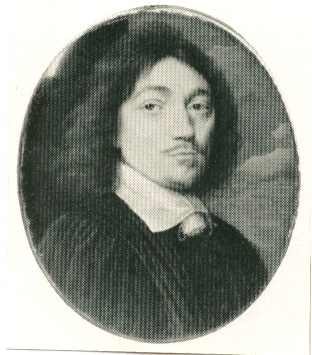
John Gauden was an English cleric. He was Bishop of Exeter then Bishop of Worcester. He was also a writer, and the reputed author of the important Royalist work Eikon Basilike.

The Bishop of Worcester is the head of the Church of England Diocese of Worcester in the Province of Canterbury, England.
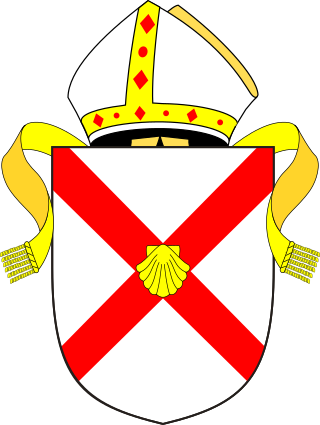
The Bishop of Rochester is the ordinary of the Church of England's Diocese of Rochester in the Province of Canterbury.

The Bishop of Winchester is the diocesan bishop of the Diocese of Winchester in the Church of England. The bishop's seat (cathedra) is at Winchester Cathedral in Hampshire.
The Dean of York is the member of the clergy who is responsible for the running of the York Minster cathedral. As well as being the head of the cathedral church of the diocese and the metropolitical church of the province, the Dean of York holds preeminence as the Province of York vicar.
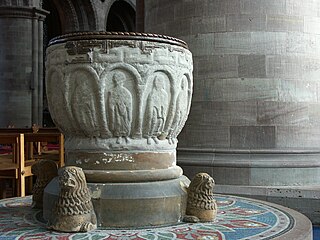
Robert Foliot was a medieval Bishop of Hereford in England. He was a relative of a number of English ecclesiastics, including Gilbert Foliot, one of his predecessors at Hereford. After serving Alexander, Bishop of Lincoln as a clerk, he became a clerk of Henry of Blois, the Bishop of Winchester and brother of King Stephen of England. He attended the Council of Reims in 1148, where another relative, Robert de Chesney, was elected as Bishop of Hereford. Chesney then secured the office of Archdeacon of Oxford for Foliot.

Humphrey Henchman (1592–1675) was a Church of England clergyman and bishop of London from 1663 to 1675.

Brian Duppa was an English bishop, chaplain to the royal family, Royalist and adviser to Charles I of England.

Benjamin Lany was an English academic and bishop.
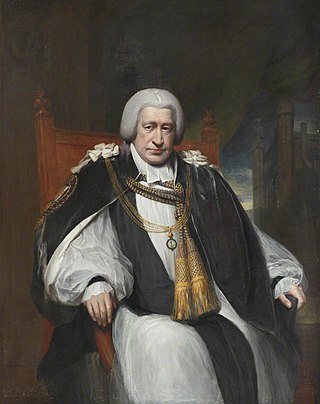
Brownlow North was a bishop of the Church of England.
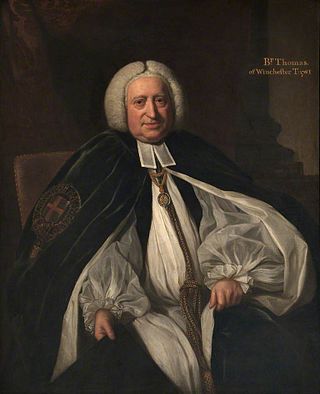
John Thomas was an English bishop.
The Archdeacon of Gloucester is a senior ecclesiastical officer in the Diocese of Gloucester, England whose responsibilities include the care of clergy and church buildings within the area of the Archdeaconry of Gloucester.
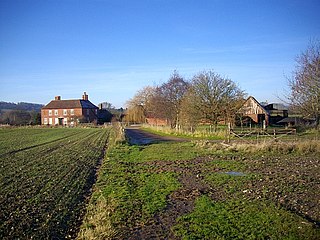
Henry Bright was a clergyman and schoolmaster in Worcester. He served for 38 years Headmaster at The King's School, Worcester, and is mentioned by Thomas Fuller and Anthony Wood as an exceptional teacher, particularly of Latin, Greek and Hebrew. The period was at the height of Neo-Latin writing and Latin medium teaching. Many of his pupils are notable for their faculty in Latin and Greek and their impact on theological matters.
Henry Bridgeman was an Anglican clergyman who served in the Church of England as the Bishop of Sodor and Man from 1671 to 1682.
Thomas Warmestry was Dean of Worcester from 1661 until his death.
Anthony Hawles DD was a Canon of Windsor from 1660 to 1664 and Archdeacon of Salisbury.
William Fleshmonger(? -1541/42), the son of a Winchester College tenant, was born in Hambledon, Hampshire. He was a Doctor of Canon Law and Dean of Chichester during the turmoil of the English Reformation.














